Recommendations, Policies and Goals for the state of Israel – Leaders’ Summit on Climate Change Earth Day April 22nd -23rd 2021

The newly inaugurated President of the USA, Mr. Joe Biden, has recently called for a virtual meeting of 40 world leaders to discuss the global climate crisis. The Prime Minister of Israel, Mr. Benjamin Netanyahu, has also been invited to this summit, which will be held on the 22/4-23/4, Earth Day. Alongside the economic future […]
Energy Forum 49: Integrating hydrogen into the Israeli energy sector
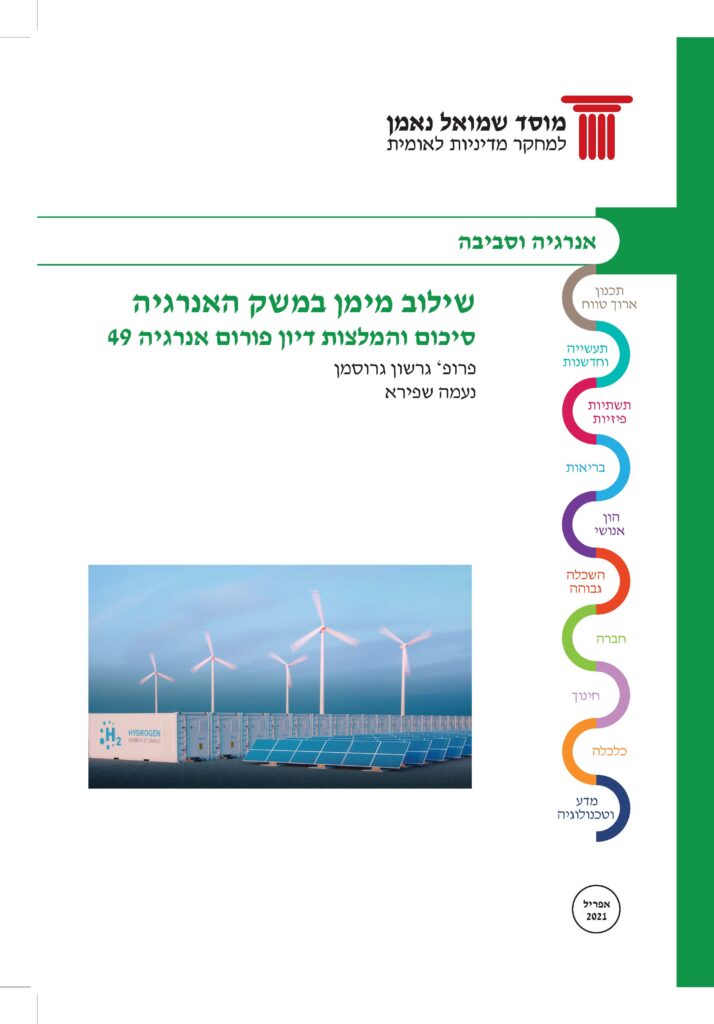
Hydrogen is the most common element in nature but rarely exists in its pure form in nature. It is possible to produce hydrogen from water through the electrolysis process by using electricity. In addition, it is possible to produce hydrogen from organic materials, such as natural gas and coal, using several methods of reforming and […]
Greenhouse Gas Emissions Reporting and Registration System in Israel: Summary of Reports for 2019

63 companies and organizations submitted their reports to the Voluntary GHG Registry in 2019 to the Ministry of Environmental Protection. Each of the reporting companies, enclosed a signed statement regarding the reliability of the data, as required by the Reporting and Registration System, which was developed by SNI in cooperation with the Ministry of Environmental […]
Review of the Impact of Natural Gas Based Transportation Fuels on Air Quality
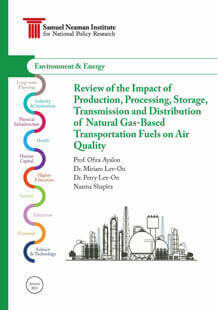
As Israel attempts to diversify its energy sources, its use of natural gas is rapidly expanding, taking advantage of discovered resources off Israel’s shores in the Eastern Mediterranean. Due to expansion of offshore operations and broader introduction of natural gas into the Israeli economy, emissions of associated air pollutants along with other potential environmental and […]
Towards a reform of the tax system

Israel is facing very large fiscal needs as a result of the COVID-19 crisis and the need to upgrade vital public services after a long period of neglect, and therefore tax increases will be inevitable in the near future. At the same time the many flaws of the Israeli tax system call for urgent reform, […]
Energy Forum 48: Energy in a Smart City
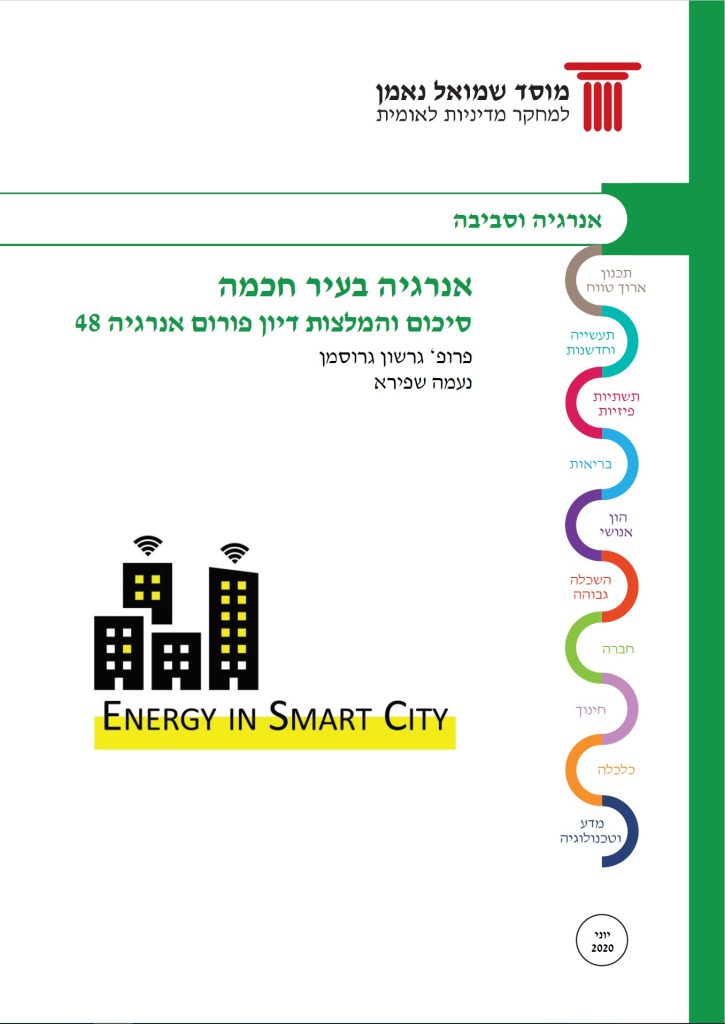
Most of the world’s population now resides in cities. By 2030, the population of the cities around the world is expected to grow from 3.3 billion to 5 billion people. In Israel, approximately 6 million residents live in urban communities. Because of resource constraints, it may become difficult to provide all the services to city […]
Assessment of Natural Gas Loss from the Well-to-Tank Supply Chain of Natural Gas Based Transportation Fuels
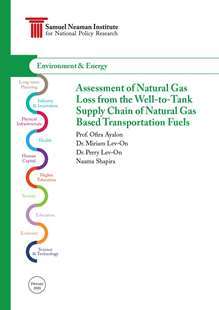
Methane (CH4) is the primary component of natural gas and the second largest contributor to greenhouse gas (GHG) emissions, following carbon dioxide (CO2), and is thus the focus of global efforts to reduce the warming of the atmosphere. The global warming potential of methane is over 25 times that of CO2. Methane also contributes to […]
The River Restoration Administration Activity Assessment

This study assesses the activities, achievement and challenges of the river restoration administration, since its establishment in 1993.
Lessons Learned from Select Countries and Cities Policy Measures to Reduce Air Pollution from the Transportation Sector
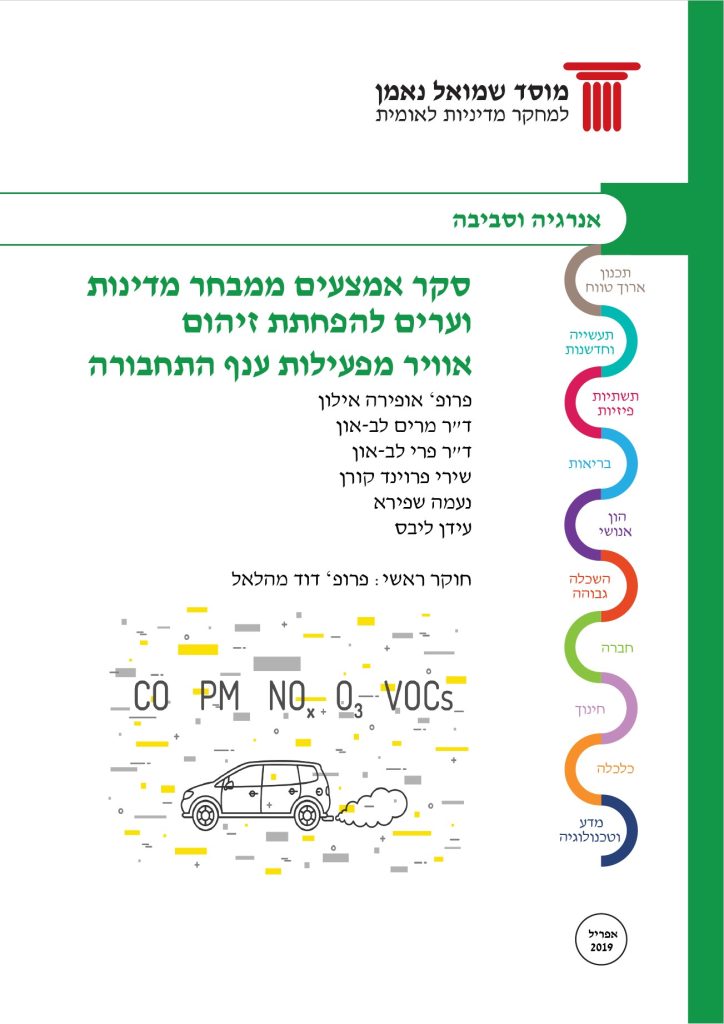
Management of air pollution from transportation refers to the dynamic process a regulatory authority undertakes to reduce, prevent/eliminate air pollution emissions and their harmful effects on human health and the environment. The process of managing air quality, including from the transportation sector sources, consists of a cycle of inter-related activities, including periodic assessments and reviews […]
Energy Forum 47: Combined Photovoltaic and Storage Systems to Produce Electricity From Solar Energy
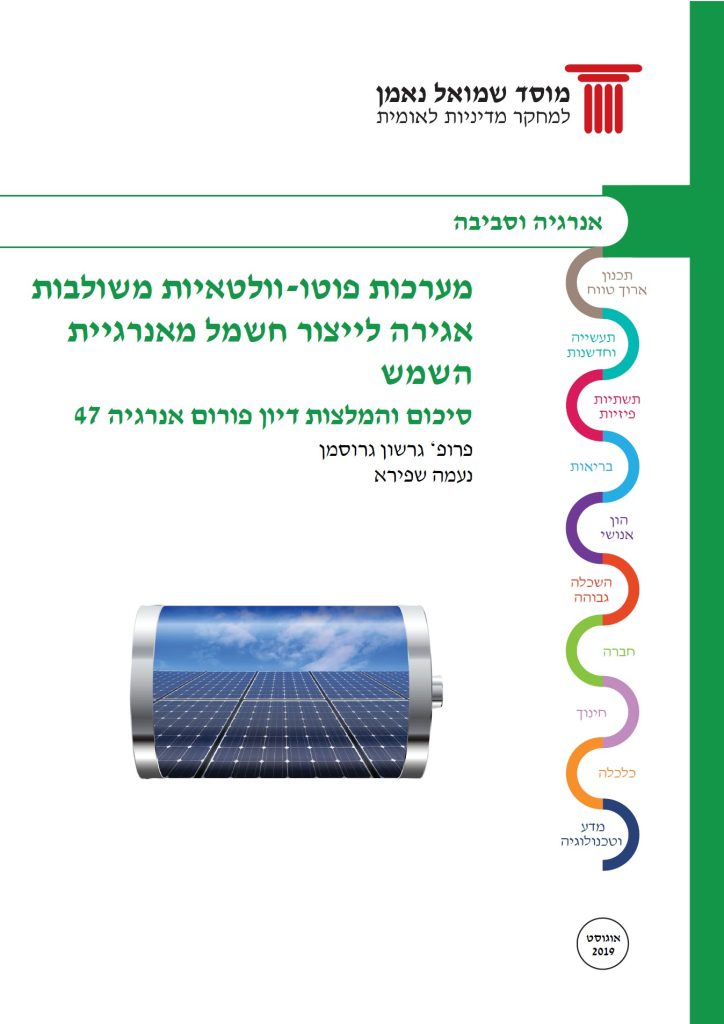
In 2018, installations providing more than 100 giga-watts of solar energy were built worldwide, and the total global capacity of this energy was higher than 500 giga-watts. This volume represents an increase of 4% as compared to 2017, in comparison with an increase of 30% and 50% in the previous two years, respectively. In 2018, […]
